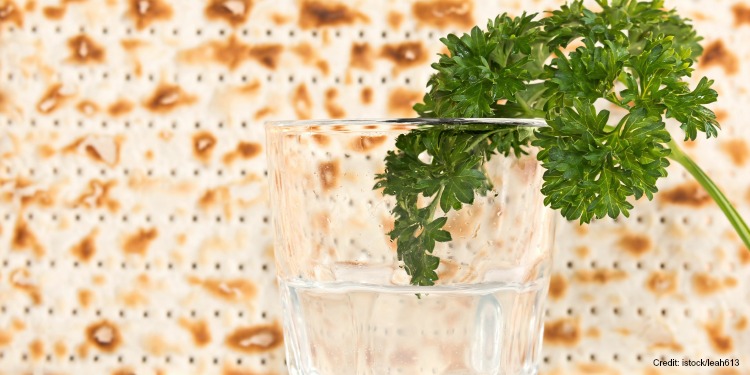The Bitter and the Sweet
The Fellowship | April 19, 2019

That same night they are to eat the meat roasted over the fire, along with bitter herbs, and bread made without yeast. — Exodus 12:8
Beginning at sunset today, the Jewish celebration of Passover takes place for the next eight days. For each day of Passover, or Pesach in Hebrew, we will offer a devotional reflection from Rabbi Yechiel Eckstein’s collection of timeless teachings. We pray that these reflections will deepen your understanding of Passover and its many lessons for both Christians and Jews.
For more reflections on Passover, please download our complimentary Passover Devotional Guide.
The way we celebrate Passover today is not how it was originally commemorated. When the Temple stood, the main focus of Passover was the offering which was brought in remembrance of the first offering originally made on the eve of the Exodus. As you may recall, God commanded the children of Israel to sacrifice a lamb, place its blood on their doorframes, and then “eat the meat roasted over the fire, along with bitter herbs, and bread made without yeast.” In Temple times, the nation of Israel would eat the Passover offering in the same way. Today, we observe a modified version of this ritual. On Passover night, we eat bitter herbs together with matzah, bread without yeast.
The Jewish sages point out that the bitter herbs and the matzah represents two opposite ideas. The bitter herbs represent slavery; matzah symbolizes redemption – it was the bread that didn’t have time to rise when salvation came in the blink of an eye. Today, there is an added element in the bitter herb-matzah combination. We add haroset, a sweet mixture made of fruit, nuts, and wine that is meant to remind us of the mortar used for building by the Israelites as slaves in Egypt. Haroset reminds us of bitter times, and yet, at the same time, it tastes sweet with its fruit and wine.
On Passover night, we mix the bitter and the sweet, slavery and freedom, oppression and redemption. Why? Because it is all part of one story.
In life, we tend to separate our good times and bad times. We have dry seasons and seasons of abundance. We don’t like the trying times in our lives, and we long for the more comfortable, blessed times. But the truth is, as we learn on Passover, it’s all a blessing. The adversity in our lives is what leads us to our greatest victories.
God sends us bitter times so that we may become better people. He sends us challenges so that we might rise above them. When God told Abraham about the slavery and redemption that would befall his descendants, God said: “Know for certain that for four hundred years your descendants will be strangers in a country not their own and that they will be enslaved and mistreated there. But I will punish the nation they serve as slaves, and afterward they will come out with great possessions” (Genesis 15:13–14). God promised that there would be bitterness, but then there would also be blessings.
Friends, know today that anything that tastes bitter in your life right now is preparing you for sweet blessings in the future. Have faith . . . the best is yet to come!
